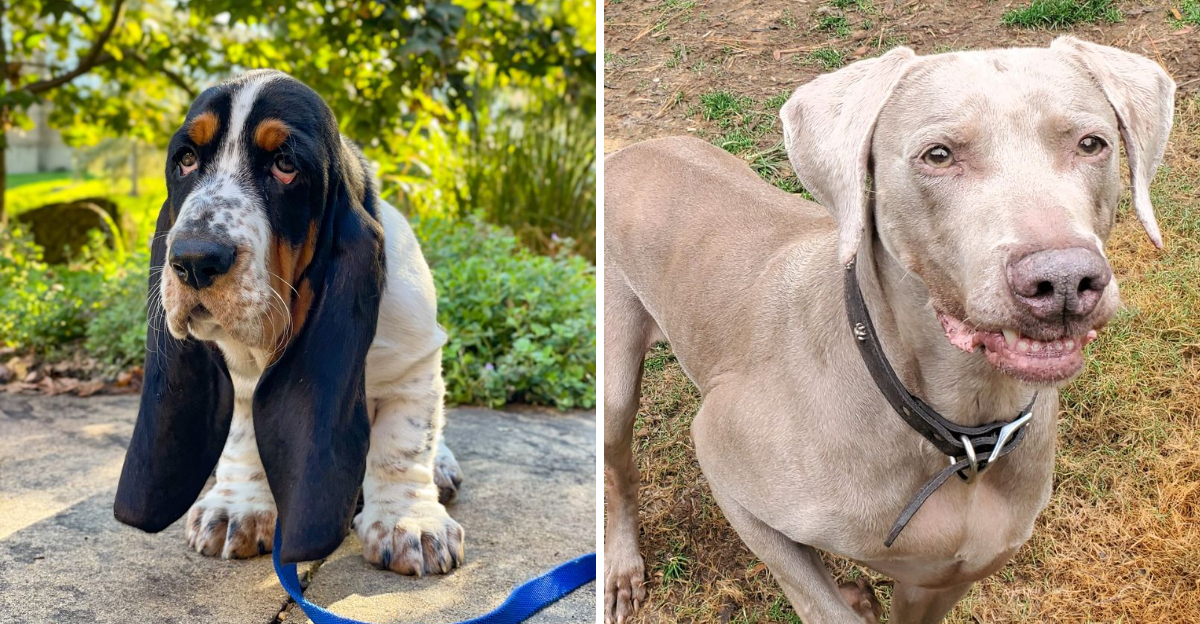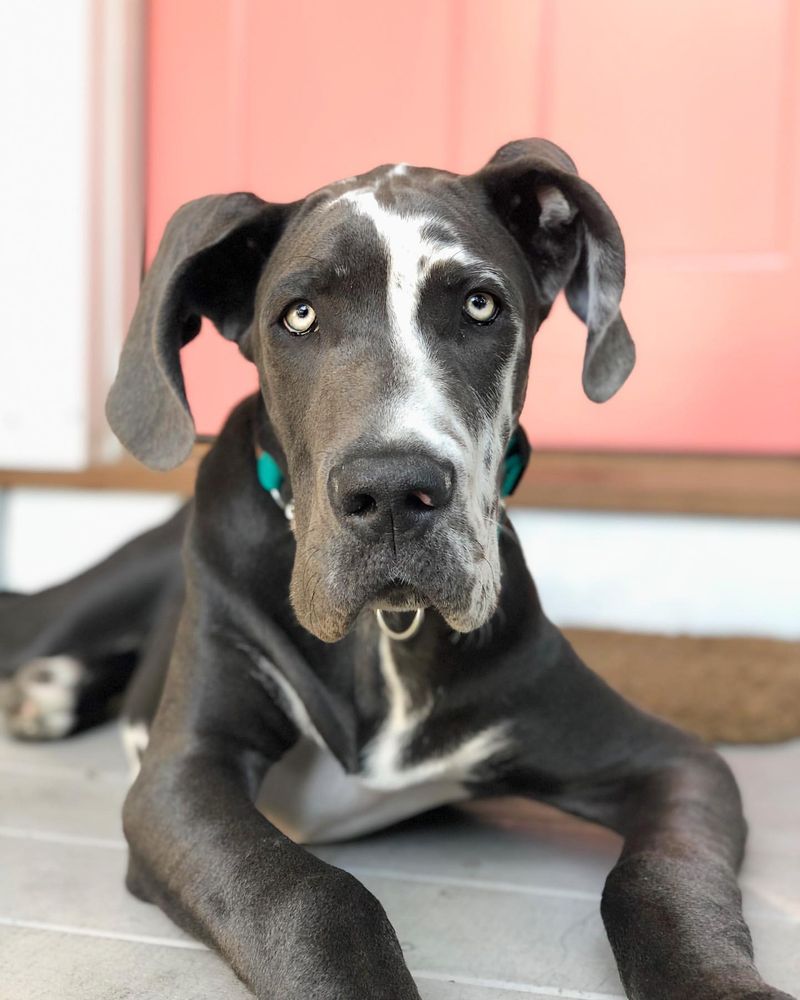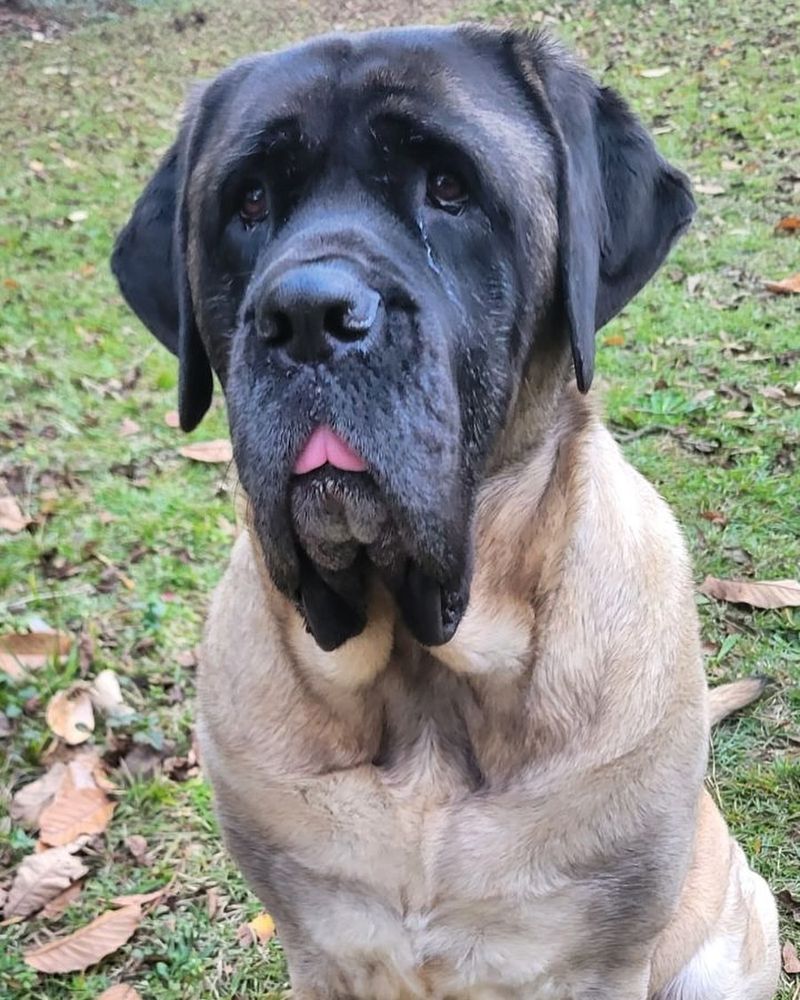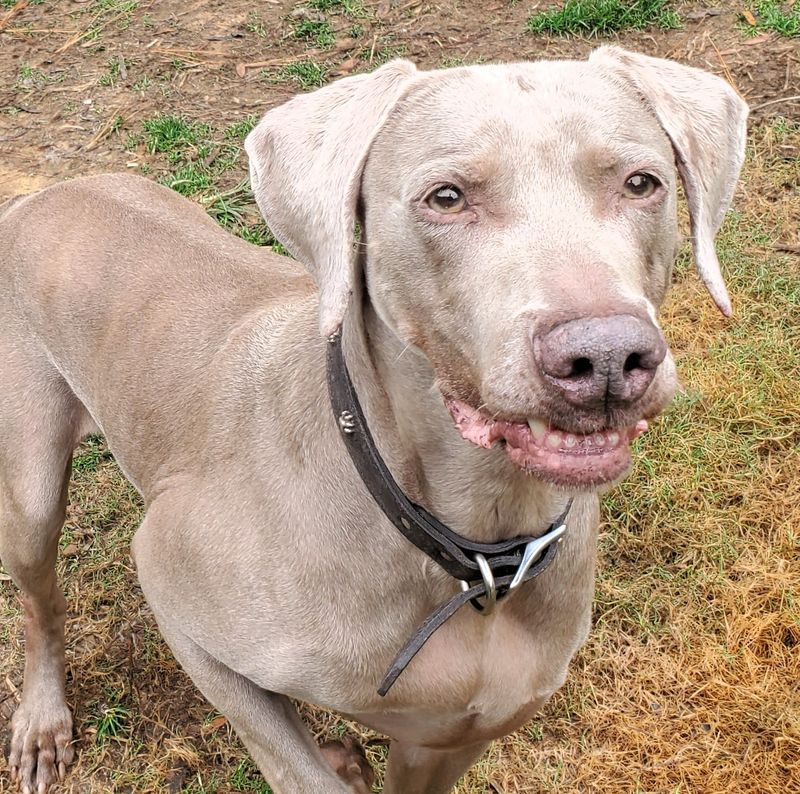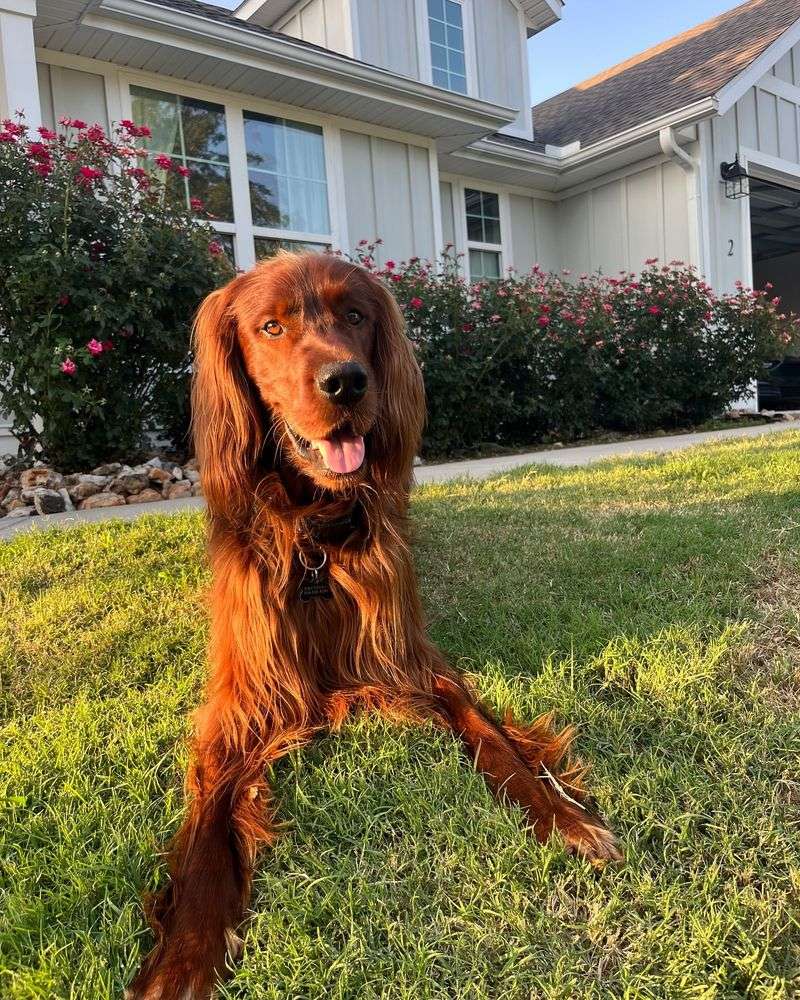While dogs are beloved members of our families, it’s important to recognize that not all breeds share the same longevity. Some dog breeds are known for their shorter lifespans due to various genetic and health factors. This post explores 14 such breeds, providing insights into their characteristics and care tips. Understanding these aspects can help owners make informed decisions and provide the best life possible for their furry friends.
Bulldog
Bulldogs are charming companions with their distinctive wrinkled faces and muscular bodies. Unfortunately, they have a lifespan of approximately 8 to 10 years due to various health concerns. These include respiratory issues stemming from their brachycephalic (flat-faced) structure.
Their affectionate nature makes them wonderful pets, but owners should be aware of potential health problems. Regular check-ups and a healthy diet can help manage their well-being. Bulldogs require moderate exercise to maintain a healthy weight, which can extend their lifespan.
Providing a comfortable environment and understanding their needs is vital for their happiness.
Great Dane
Great Danes, known as gentle giants, capture hearts with their towering presence and friendly demeanor. However, their lifespan is unfortunately shorter, typically around 7 to 10 years.
Their large size contributes to health issues such as hip dysplasia and heart disease. Regular veterinary visits and maintaining a healthy diet can support their long-term health.
Despite their size, Great Danes are relatively low-energy dogs, needing moderate exercise. They thrive in homes where they can stretch out, preferably with a spacious yard. Awareness of their health needs ensures a fulfilling life.
Irish Wolfhound
Irish Wolfhounds are known for their impressive size and gentle nature. Despite their grandeur, they have a shorter lifespan, typically ranging from 6 to 8 years.
Their large size predisposes them to health issues, including heart disease and bone cancer. Regular veterinary care and a balanced diet are essential for managing these risks.
These dogs enjoy leisurely walks and need ample space to roam. Their calm disposition makes them excellent family pets, but potential owners should be prepared for their health challenges. Understanding their needs can help provide a happy life.
Bernese Mountain Dog
Bernese Mountain Dogs are beloved for their friendly demeanor and striking tri-colored coats. However, their lifespan is relatively short, averaging 6 to 8 years.
Genetic predispositions to cancer and joint problems affect their longevity. Regular health screenings and a nutritious diet are crucial for extending their lifespan.
These dogs enjoy outdoor activities, especially in cooler climates. They are loyal companions who thrive on human interaction. Ensuring regular exercise and mental stimulation can enhance their quality of life. Awareness of health issues is key to their care.
Boxer
Boxers are known for their exuberant energy and playful personalities. Sadly, they often live only 10 to 12 years due to genetic health issues.
Common problems include heart conditions and cancer. Regular vet check-ups and a balanced diet are essential for managing these risks.
Boxers require plenty of exercise to channel their energy positively. They are loyal and protective, making them excellent family pets. Providing mental stimulation through training and games can enhance their well-being. Understanding their health needs is vital for a fulfilling life.
Rottweiler
Rottweilers are admired for their strength and loyalty, but they typically live only 8 to 10 years. Their lifespan is affected by genetic predispositions to joint issues and cancer.
Regular veterinary care and a balanced diet are essential to manage these health challenges. Rottweilers require consistent training and socialization.
These dogs thrive in active households where they can receive ample exercise. They excel in roles that utilize their protective instincts. Awareness of their health needs and providing a supportive environment can enhance their quality of life.
Saint Bernard
Saint Bernards, with their gentle disposition and iconic rescue history, often live between 8 to 10 years. Their large size contributes to health issues such as hip dysplasia and heart problems.
Regular veterinary visits and a healthy diet are vital for their well-being. These dogs enjoy leisurely walks and need ample space.
They are friendly and affectionate, making them wonderful companions. Saint Bernards thrive in cooler climates and appreciate environments where they can stretch out comfortably. Understanding their health needs ensures a fulfilling life.
Mastiff
Mastiffs, known for their imposing size and gentle nature, generally have a lifespan of 6 to 10 years. Their large build can lead to health issues such as joint problems and heart disease.
Providing regular veterinary care and a balanced diet is crucial for their health. Despite their size, Mastiffs are calm and require minimal exercise.
They make excellent family pets, thriving in environments where they can relax. Awareness of their health needs and creating a supportive home environment can enhance their quality of life.
Dogue de Bordeaux
Dogue de Bordeaux, known for their powerful build and affectionate nature, often live 5 to 8 years. Their large size and genetics contribute to health issues like heart disease and joint problems.
Regular health screenings and a nutritious diet are vital for managing these risks. Despite their strength, they are calm companions who require moderate exercise.
Creating a comfortable home environment and understanding their health needs is essential for their well-being. They thrive on human companionship and are known for their loyalty. Awareness of potential health issues ensures a fulfilling life.
Newfoundland
Newfoundlands, adored for their gentle temperament and swimming prowess, generally live 8 to 10 years. Their large size can lead to health problems such as hip dysplasia and heart disease.
Regular vet check-ups and a balanced diet are crucial to manage these risks. Newfoundlands enjoy water activities and require ample exercise.
They are affectionate and loyal, making them great family pets. Providing mental stimulation and understanding their health needs can enhance their quality of life. Awareness of potential health issues is key to their care.
Chow Chow
Chow Chows are known for their distinctive lion-like appearance and independent nature. They have a lifespan of about 8 to 12 years, often affected by health issues like hip dysplasia and eye problems.
Regular veterinary care and a healthy diet are essential for their well-being. Despite their aloof demeanor, they are loyal companions.
Chow Chows require moderate exercise and appreciate environments where they can observe quietly. Understanding their health needs and providing a supportive home environment is crucial for their happiness.
Basset Hound
Basset Hounds, with their long ears and gentle demeanor, typically live 10 to 12 years. They can face health issues related to obesity and ear infections due to their structure.
Regular veterinary visits and a balanced diet are vital to manage these risks. Basset Hounds enjoy leisurely walks and require moderate exercise.
They are affectionate and get along well with children, making them excellent family pets. Awareness of their health needs and providing regular grooming can enhance their quality of life. Understanding their care requirements is essential for their well-being.
Weimaraner
Weimaraners, known for their sleek appearance and boundless energy, often live 10 to 12 years. Their active nature can lead to health issues like hip dysplasia and bloat.
Regular health screenings and a nutritious diet are essential for managing these risks. They require plenty of exercise to channel their energy positively.
Weimaraners thrive in active households and enjoy various outdoor activities. They are loyal companions and excel in obedience training. Providing mental stimulation and understanding their health needs can enhance their quality of life. Awareness of potential health issues is key to their care.
Irish Setter
Irish Setters, celebrated for their striking red coats and playful nature, generally live 12 to 14 years. They can face health challenges such as hip dysplasia and bloat.
Regular veterinary care and a balanced diet are crucial to manage these risks. These dogs require ample exercise due to their high energy levels.
Irish Setters thrive in active households and enjoy engaging in family activities. They are affectionate and excel in obedience training. Providing mental stimulation and understanding their health needs can enhance their quality of life. Awareness of potential health issues is key to their care.
